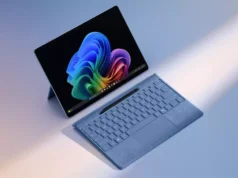Opera co-founder and former CEO Jon von Tetzchner may have parted ways with the company since 2010 though his browser building instincts seem to be intact. This should explain the recent launch of the Vivaldi 1.0 web browser, which is claimed to have all that the current crop of browsers misses out on, including Opera.
Among the most notable features that Tetzchner said the Vivaldi browser boasts of including a more potent tab management feature which he claims to be better than anything that other browsers have to offer. That includes Tab Stack where users have the option to drop a tab onto another to create a stack. This is helpful when one has just too many tabs open. Then there also is the Tiling option where the tabs in the Tab Stack can be spread out that lets users see multiple pages at the same time. Tab Stack Tiling is of more relevance in bigger displays
Then there also is the Sessions feature that lets users group together the most visited or favorite set of tabs for future retrieval.
Further, Vivaldi also offers the Notes feature which allows users to pen and save notes as in the Microsoft Edge browser. Vivaldi will also remember the site when the notes are made while users will also be able to take screenshots as well.
Vivaldi also supports mouse gestures and keyboard shortcuts that let the user accomplish a wide range of browser actions with simple mouse gestures or keyboard shortcuts.
Another standout feature of Vivaldi is its vast customization options that allow the users to customize the browser around their personal tastes and requirements.
The future build will see the integration of more features such as an email reader and the ability to sync. Also, of course, mobile app versions are also being worked on given the huge proliferation of smart mobile devices.
“We set out on a mission to make web browsers powerful again,” said Jon von Tetzchner, CEO, Vivaldi.
“So Vivaldi 1.0 is both a throwback and a look ahead. It’s a ‘Modern Classic’ designed to help our users get the most out of all the time they spend with their browser.”
The Vivaldi is currently available for download from the company website and is compatible with Windows, OS X, and Linux platforms.
“Everything we build is in service of the user. We have no investors and their agendas to dictate our progress. There’s no exit strategy, and we’re here to stay. All we want to do is give people a browser they’re proud to use and that we’re proud to call Vivaldi,” further added Tetzchner.











